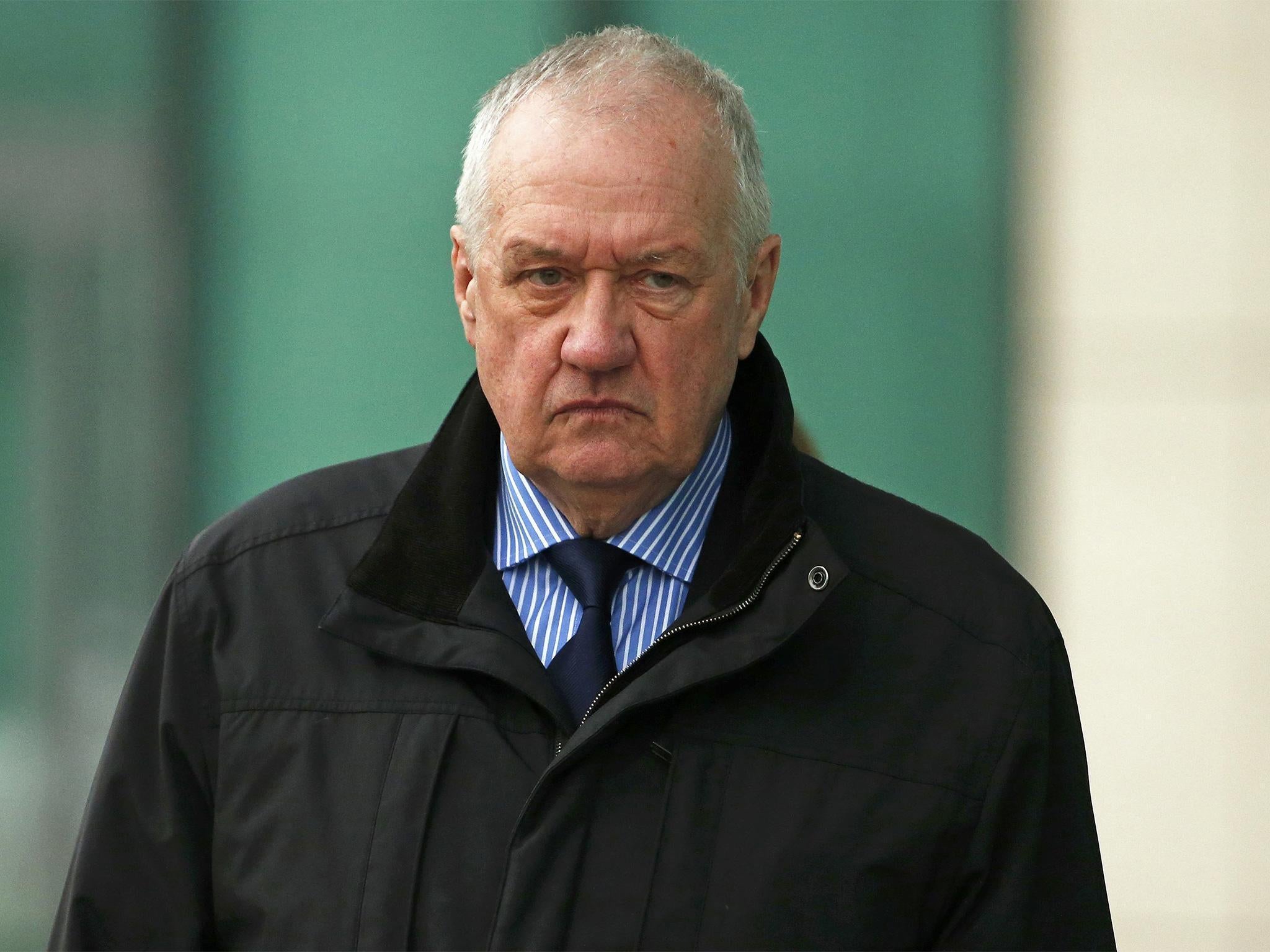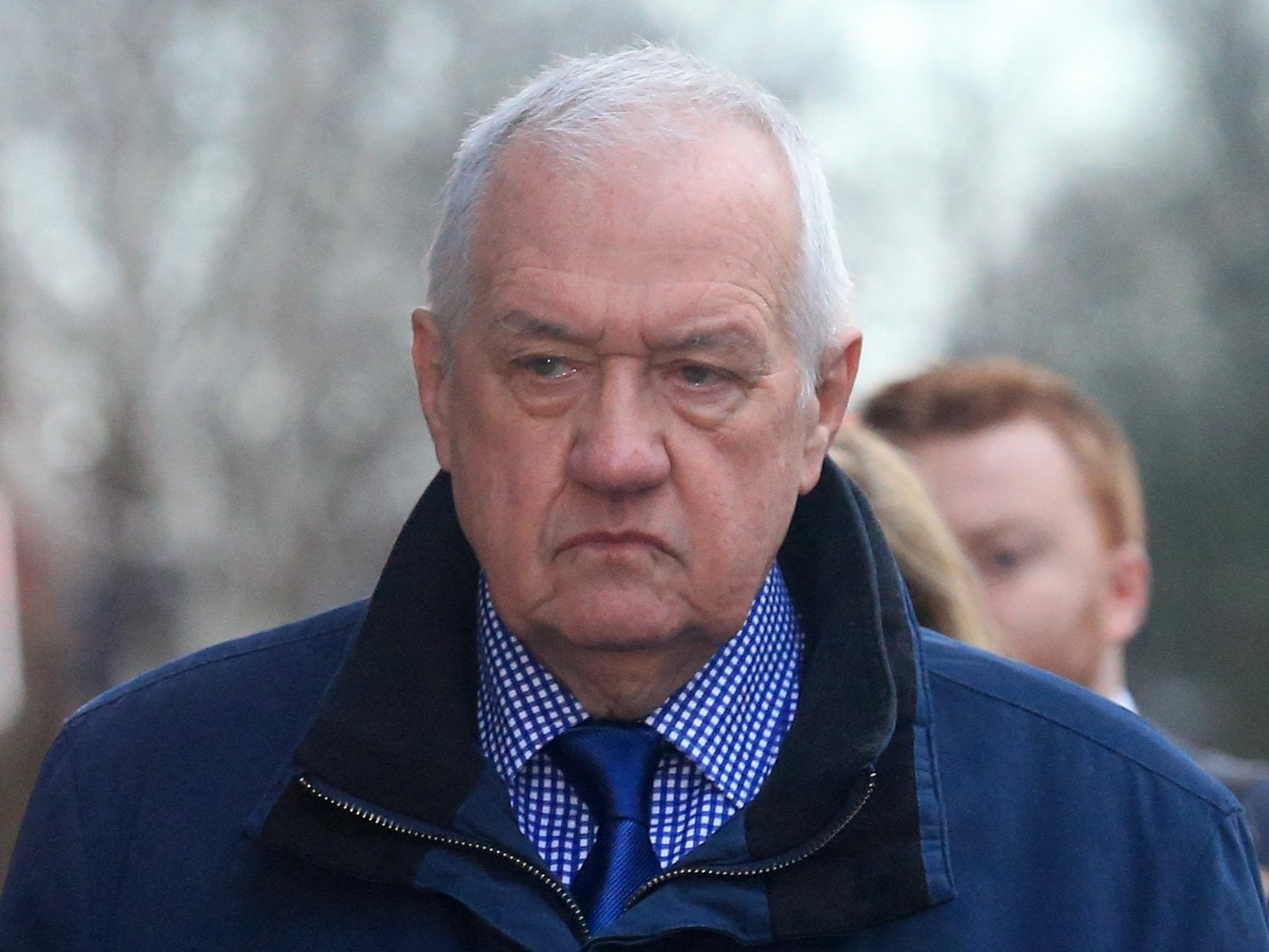Hillsborough trial: David Duckenfield 'unfairly singled out' for manslaughter prosecution, defence claims
Prosecution says match commander's 'extraordinarily bad' series of failings led to fatal crush

David Duckenfield has been “unfairly singled out” for prosecution over the Hillsborough disaster, his defence lawyer has claimed.
The match commander “was not equipped with special powers to anticipate things that everybody else didn’t,” Benjamin Myers QC told a jury at Preston Crown Court.
He added: “It can hardly be fair to judge Mr Duckenfield by different standards from everyone else.
“The prosecution are blaming him for ... events that can’t be attributed to the fault of any persons in particular.
“What happened on 15 April 1989 was brought about by a combination of factors great and small, some with their roots in events years before and some that emerged in the hours and minutes before disaster struck.”
The prosecution had previously told the court that Mr Duckenfield’s “extraordinarily bad” failings as match commander was a substantial cause of the deaths.
Richard Matthews QC said it “required no hindsight” to realise the risk of a fatal crush in fenced pens at the Leppings Lane end of Hillsborough stadium.
Mr Duckenfield did not consider the consequences of an influx of thousands of Liverpool fans down a tunnel into the already overcrowded pens when he ordered a large gate to be opened to ease a separate crush outside the stadium, the court heard.
Prosecutors said he then failed to take action as the disaster was unfolding, with survivors and witnesses recalling how they shouted at police officers for help, and to be let out, but got no repsonse.
Excerpts of statements from officers were read showing that they were operating without orders from Mr Duckenfield, or the police control box, to try to manage crowds at the Leppings Lane end.
Even as the victims were being crushed to death, police communications played to the court suggested that some officers believed the incident to be a pitch invasion and responded accordingly.
When the match was stopped at 3.05pm, police triggered operation support, which was not a safety operation but a “contingency plan to deal with spontaneous disorder”.
Mr Matthews said: “No matter who else could have done better, done more, done things differently, Mr Duckenfield’s failures continued.
“Each flowed from his own decision making and fell squarely within his personal responsibility as match commander.
“Ultimately Mr Duckenfield failed in the most appalling manner to monitor what was happening in pens three and four, and to prevent or avert the inevitable consequence of the flow of many spectators into the central tunnel, crushing the life out of so many people.”
But speaking later on Thursday, Mr Myers told the jury a combination of factors “came together in catastrophic fashion … and to single out David Duckenfield is artificial and unfair”.
The defence lawyer said that the fencing that contributed to the disaster was common at football stadiums in the 1980s and that safety risks that may seem obvious now “were a fact of life in 1989”.
Mr Myers asked the jury to “keep in mind the danger of hindsight, the historical context and the possible unfairness of applying unreasonable standards to Mr Duckenfield from what is expected for others”.
Mr Myers pointed out that the prosecution has accepted that other people are at fault “but they are not accusing them of gross negligence manslaughter”.
He added: “You may be wondering how it can be fair to single out one man for prosecution when there are so many other people at fault – so are we. Looking back now, there may be things that could be done differently or better, and the same can be said for a good many people.”

Mr Myers said his client believes he was not negligent and “did his best”, and that “bad stadium design, bad planning, some aspects of crowd behaviour, some of police behaviour, and genuine human error” contributed to the disaster.
He reminded the jury that Mr Duckenfield is not representing South Yorkshire Police or any other agency, adding: “Our sympathy for others can never be a reason to convict another for events beyond his control or repsonsiblity.”
Mr Duckenfield, now 74, denies manslaughter by gross negligence of 95 victims.
There can be no prosecution over the death of the 96th victim, Tony Bland, as he died more than a year and a day after his injuries were caused.
Graham Mackrell, Sheffield Wednesday’s former club secretary, denies health and safety offences.
The trial continues.
Read our live coverage below:
Please allow a moment for the live blog to load
Mr Bennet got an impression of "panic and fear" at Leppings Lane and instructed the officers to allow anybody through the turnstiles as quickly as possible.
"In his view, it was obvious that the problem was not at the turnstiles, but outside and into Leppings Lane. He passed a message to the effect that they had to relieve the crush in Leppings Lane turnstile area to the control room, but he does not recall that he received any acknowledgement of it."
Mr Matthews says that Sergeant Goddard "can recall hearing three requests from Superintendent Marshall over the radio", firstly asking to open perimiter gates being people were being crushed against the turnstiles
"There was a discussion in the control box about non-ticket holders getting into the ground if the gates were open," he adds. "They were looking at the monitors."
According to Sergeant Goddard, Mr Duckenfield did not ask what other alternatives they had, Mr Matthews says
"He did not ask for Mr Goddard’s or Mr Murray’s opinion on the consequences of opening the gates. He offered no alternative to Mr Marshall apart from refusing to open the gates."
Mr Mathews says that Mr Goddard’s remembers that after the second request from Supt Marshall, Gate C opened (at 2.48 pm). Someone said, “They’ve broke through” but he immediately knew that the gate had not been forced
A background radio conversation from the police control box at 2.51pm hears someone from a VHF radio talking of “bloody chaos in Leppings Lane, thousands can’t get in” and relating that "hey’ve just broken gate down” and “Superintendent Marshall is screaming for them to open inner gates to let people in”.
Sergeant Higgins, who received amessage to assist at the turnstiles at the Leppings Lane, remembers Liverpool gans getting in complaining of the crush and lifting their children over turnstiles, asking for more officers and help
"They said that if nothing was done there would be serious injuries and even people killed," Mr Matthews says.
"He saw that gate A was moving as a result of pressure from the crowd ... he thought the gate was going to come in. He decided to ask for the gate to be opened. He will tell you how had never known that happen before. He had never come across an experience as worrying as this in terms of pressure at the turnstiles. He sent a radio message asking for permission to open Gate A; if it were not, life and limb would probably be lost. His recollection is that the response came very quickly over the radio to open Gate A. "
The jury is being played recorded radio communications, which sound panicked, from police officers at 2.51pm as the crush outside got worse.
“Seriously, open the gates, open the gates to the Leppings," one man is heard saying.
Seconds later, BBC footage shows more fans surging into overcrowded pens 3 and 4.
By 2.54pm outer gates 1, 3 and 4 had become open and fans were able to flow towards the turnstiles, Mr Matthews says
The second an main opening of gate C happened at 2.52pm. The previous opening had only lasted 26 seconds but the second one lasted and saw a large surge of fans.
"In large numbers, they made their way onwards straight through into the tunnel," Mr Matthews says
The jury is being played CCTV footage showing continued chaos in Leppings Lane, with people climbing on to walls and fences to escape the crush. As gate C opens at 14.52, a huge crowd surges through and more fans around the other side of the turnstile then see the opening, and start circling around to use it.
Some of the fans are seen running to reach the gate, as what appear to be thousands more wait in Leppings Lane.
At 2.54pm, a still colour photo shows the West Terrace looking relativel rull.
BBC footage from 2.55pm shows fans continuing to emerge out of the tunnel into pens 3 and 4, where people were pushed together and swaying
Mr Matthews says that Mr Duckenfield failed to identify the risks, then failed to "take any steps or put in place anything to sufficiently monitor and assess the number of spectators entering".
"He failed as match commander to take action in good time to relieve those crowding pressures from spectators seeking entry to the stadium," he added. "None of these failings stopped, each continued to affect what was coming to pass."
